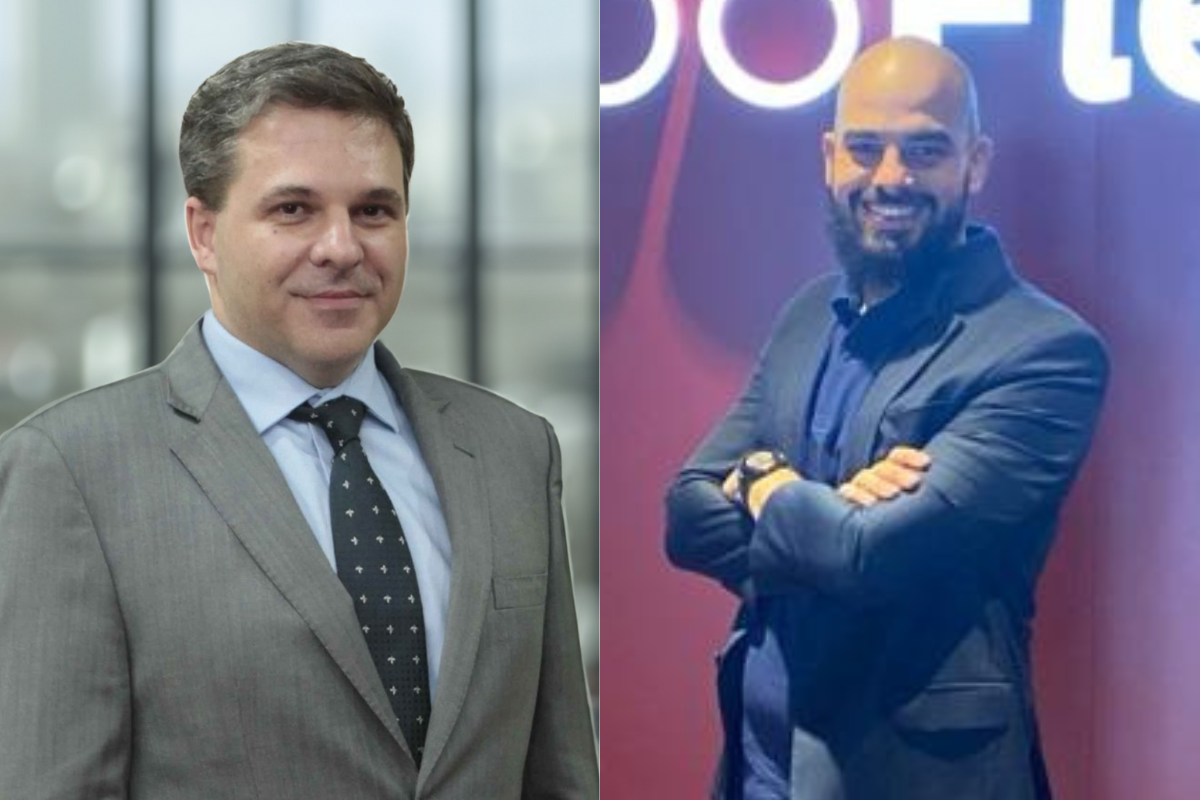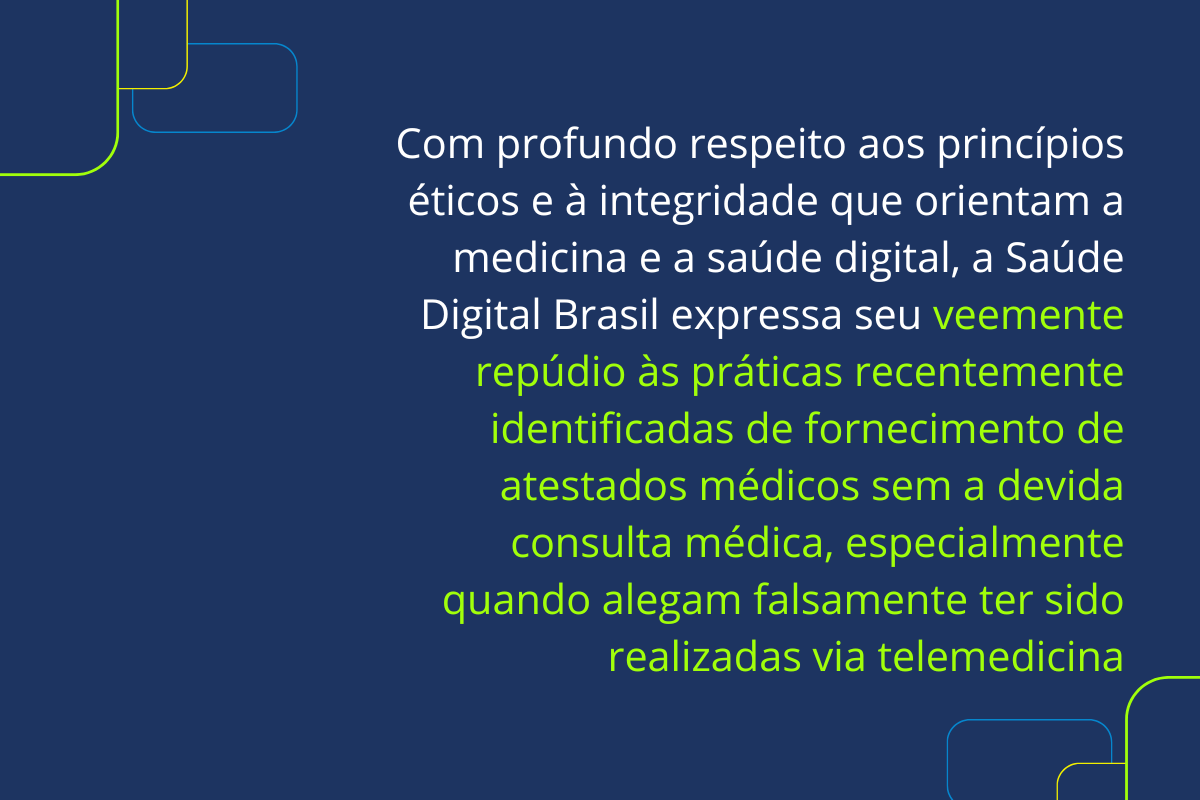Julia Cestari Santos, head of Public Policies at Mevo, and Marilia Ximenes de Araujo, head of Clinical Intelligence and Technical Manager at Memed, take on the leadership of the group focused on discussing good practices, standards and regulations for the issuance and digital journey of electronic health documents
A Saúde Digital Brasil has just elected the new leaders of the Electronic Health Documents and Dispensing Working Group. Julia Cestari Santos and Marilia Ximenes de Araujo will take on, respectively, the coordination and vice-coordination of the group, during the next three years. Electronic health documents, tsuch as reports, examination requests, medical certificates, prescriptions, have increasingly played a fundamental role in the patient and healthcare professional journey, providing an efficient and secure way to store, access and share information for continuity of care.
The role of the Electronic Documents and Dispensing WG is to provide discussions on good practices, standards and regulations for issuing and digitally managing electronic health documents in general, as well as topics related to digital certification, prescription and electronic dispensing of medicines. Its mission is also to act in the connection of the various stakeholders, defending the interests of the sector in a joint and collaborative manner. “By promoting this environment of exchange and work, we have as a result structural actions of education, awareness and advocacy, thus advancing the theme”, reinforces Julia.
The executive emphasizes that over the almost two years she has been part of the group, she has had the opportunity to learn from leaders who have shown how crucial it is to approach issues involving this theme with open dialogue and proactivity. “This experience has taught me about the richness and importance of inclusive and engaged leadership, which aims to understand the different perspectives and needs of members. Therefore, for me, the personal challenge will be to continue this legacy of effective leadership that has been established, keeping the group's vision and objectives aligned with the constantly evolving needs of the digital health sector”, adds the coordinator.
Regarding the group’s short-term challenges, vice-coordinator Marília emphasizes that, despite the advances made since the beginning of the pandemic, compared to other countries that have adopted similar technologies, the sector is still extremely fragmented. According to her, there is a lot of talk about interoperation, democratizing access, among other issues, but Brazil is still at the beginning of this journey. “We cannot forget that digital will not eliminate 100% from physical, so we need to understand how to act in both contexts, the so-called phygital. In addition to connecting and engaging all stakeholders, make regulatory and legal advances to make this path shorter and more real”, reinforces the executive who adds “To change the current scenario, it takes work and dedication. And that is what I will continue to deliver every day as vice-coordinator of the GT”.
New management plans
Given this scenario, the new management plans to act on two main fronts. The first is awareness and education about the importance of electronic health documents. After all, there is still a lack of knowledge and doubts about the use of electronic health documents, what are the best practices and regulations on the subject. Over the last two years, the WG has collaborated with the SDB Good Practices Manual and developed a chapter dedicated to the topic. The new coordinator says that, considering that these guidelines were very well received by managers and health services, the idea is to expand the scope of this knowledge to society, patients and prescribers to promote the appropriate use of these technologies and dispel any doubts or insecurities.
The second, interconnected axis is to extend this acculturation and exchange experiences with authorities, mainly regarding the need to regulate and promote the use of these technologies. Although there has been a law that recognizes the validity of digitally issued health documents since 2020, some progress is still needed in the regulation of electronic prescriptions, including Prescription Notifications (blue and yellow booklets), which are the only ones that cannot yet be issued digitally. Interoperability is also part of this axis.
“The most important thing is that these two points are supported mainly by dialogue and the creation of bridges – whether with other WGs of the SDB itself, as well as with authorities and other interested entities in the sector. We want to be this bridge to democratize access to these technologies, as is currently the case in other countries such as the United States, the United Kingdom, Australia and Portugal”, reinforces Julia.
One of the main highlights of the new management will be the creation of more content and the updating of the SDB Good Practices Manual. As with everything in innovation, the evolution of platforms and the adaptation of their use have been very fast and, therefore, it is very important to incorporate the latest trends and practices into the text of this work.
The importance of electronic health documents and dispensing in the current context of Brazilian healthcare
Electronic health documents increase patient safety by minimizing the risk of dispensing errors, difficulties in understanding by the patient or caregiver, and the loss of physical documents, providing agility in treatment adherence, exams, referrals, and other types of processes. In addition, they have become essential tools for continuity of care after a remote consultation with a healthcare professional.
From the perspective of healthcare professionals, such documents are crucial for automating processes and adding intelligence, such as integrated medical decision support tools, which allow the prescriber to focus on the patient's needs and bring relevant information, such as health data from their patients.
In the case of prescriptions, ease of understanding, interoperability between systems, monitoring for proper pharmaceutical assistance and minimizing the risk of fraudulent prescriptions are aspects that make a difference for pharmacies. In addition, they provide regulatory authorities with agile access to health data. “We recently saw news in the press about the lack of data on the dispensing of controlled medications in Brazil, a situation that interoperability would drastically reduce. We saw this possibility with the RNDS, with the registration of vaccines and Covid tests, for example. But that’s not all, we can go further”, reinforces Marília.
About the new coordinators

Julia Cestari Santos holds a degree in International Relations from ESPM, with a specialization in Government Relations and a master's degree in Management and Public Policy from FGV. She has taken extension courses in Public Finance from FIPE, Advocacy and Public Policy from FGV and Evidence-Based Public Policy Management from Insper. She has over eight years of experience in the field of Government Relations and Public Policy in the health sector. For much of her career, she worked in consulting, managing projects and collaborating with companies in the sector and with civil society on analysis projects and strategies to improve public policies in the health system. Since 2021, she has held the position of Head of Public Policy at Mevo, a healthtech focused on digital prescriptions. Her work has been promoting the advancement of discussions on digital health policies in a safe and accessible way for health professionals and patients.
Marilia Ximenes de Araujo is a pharmacist and a postgraduate student in strategic business management. Passionate about the healthcare sector, she has over 14 years of experience in the healthcare sector, leading initiatives that aim to improve efficiency, accuracy and accessibility in the prescription of medical treatments. She is currently the Head of Clinical Intelligence and Technical Manager at Memed, leading the development and implementation of innovative solutions to optimize the delivery of healthcare. In addition, she has applied her knowledge and experience to promote awareness of the benefits of digital health and help overcome the challenges faced by the Brazilian healthcare ecosystem. She is a strong advocate of the fact that investing in technology is fundamental to achieving more inclusive, effective and sustainable healthcare in Brazil.





